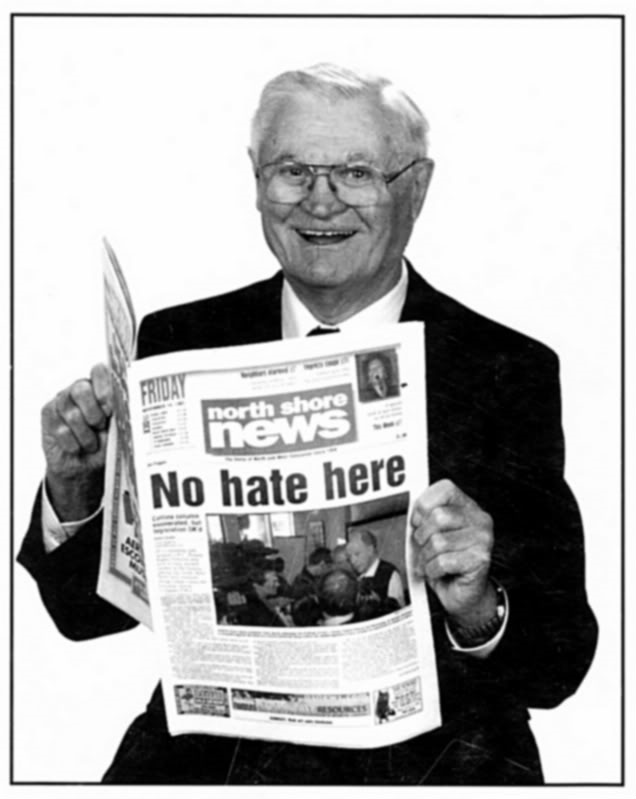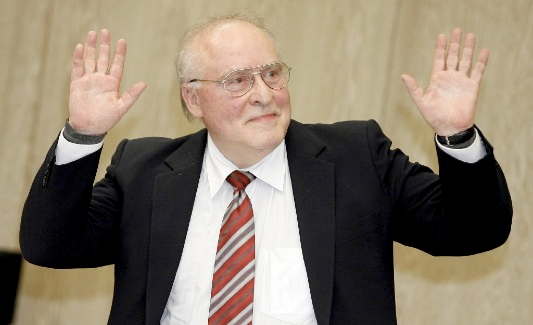The Canadian Association for Free Expression
The Canadian Association for Free of Expression was incorporated by Letters Patent on the 13th day of April, 1983, as a non-profit corporation in the Province of Ontario under the Corporations Act.
We have sought intervention and intervened in the following cases:
* The Canadian Association for Free Expression was granted intervener or “interested party” status before the Canadian Human Rights Tribunal inquiring into the Internet case against Ernst Zundel. This was a Sec. 13.1 complaint and involved over 50 days of hearings. CAFE participated actively and led five days’ worth of evidence, involving seven witnesses.
* CAFE also participated in a number of applications for judicial review of decisions involving this hearing.
* The Canadian Association for Free Expression was granted intervener status in the Supreme Court of British Columbia in a challenge to the constitutionality of Sec. 7(1)(b) of the B.C. Human Rights Code in the Berscheid case.
* As well, in the Autumn of 2000, the Canadian Association for Free Expression was granted intervenor status in a constitutional challenge to the same section of the code in the Doug Collins/North Shore News case. CAFE was granted the right to cross-examine witnesses, make submissions and introduce evidence. This complaint also raised and relied on the controversial and much disputed Sec. 7(1)(a)(b),
* In addition, the Canadian Association for Free Expression was granted intervener status n a B.C. Human Rights Tribunal hearing in a complaint against the Town of Oliver and Mayor Linda Larson following their refusal to proclaim Gay Pride Week.
* . The Canadian Human Rights Tribunal in the Zundel case, in granting CAFE’s motion for “interested party status”, ruled:
“We find that the motion brought by Mr. Fromm, on behalf of the Canadian Association for Free Expression, should be allowed. We are satisfied that. Mr. Fromm will bring a unique perspective to these proceedings and that his organization has demonstrated a credible interest in the significant issue before this tribunal. … The focus of Mr. Fromm’s organization is on the issue of free expression.”
* In granting the Canadian Association for Free Expression “intervenor status” in the complaint against the town of Oliver, Tribunal member Nitya Iyer noted, February 16, 2000:
“The material brought before me shows it [CAFE] has a demonstrated interest in freedom of expression issues in the context of human rights legislation. I am prepared to accept that its participation may assist the Tribunal in its resolution of the constitutional issues raised in this complaint. I also note that the constitutional issue raised in this complaint has implications before the narrow facts of the present complaint. The interpretation of provisions of the code in light of the Charter’s guarantee of freedom of expression is a matter of public interest.”
* CAFE was also granted “interested party” status in the Schnell vs. Micka Canadian Human Rights complaint (2001) also under Sec..13.1 involving Mr.. Micka’s Internet site. In this seven day hearing, CAFE actively cross-examined witnesses, led expert testimony and made submissions to the Tribunal.
* CAFE sought and obtained “interested party” status in the Richard Warman v Marc Lemire case, with particular reference to Mr. Lemire’s constitutional challenge.
* In 2009, CAFÉ sought and obtained “interested party” status in Harry Abrams v Arthur Topham and Radicalpress.com a complaint about Internet postings under Sec. 13.1 of the Canadian Human Rights Act.

